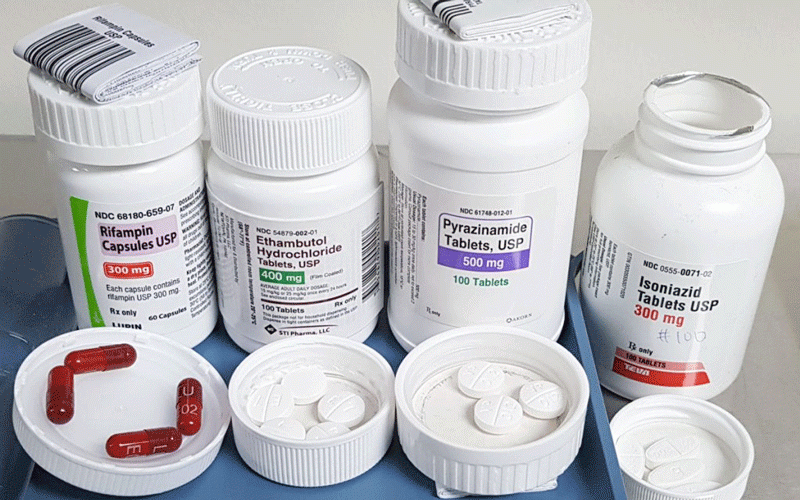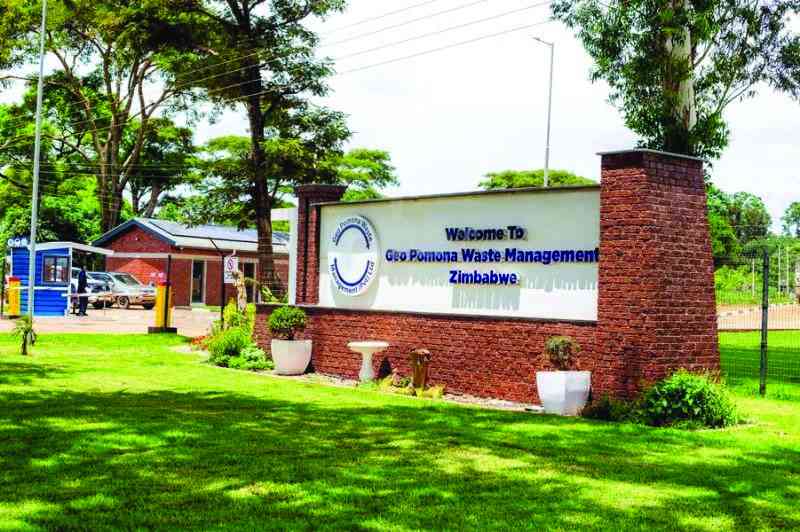
Zimbabwe is facing serious supply chain disruptions of tuberculosis (TB) drugs leading to shortages in public health institutions amid growing concern that termination of treatment is a major obstacle to effective control of the disease.
TB treatment and care is free in Zimbabwe and experts fear the shortage of drugs is likely to give rise to multi-drug resistant TB and death.
Every year, 10 million people fall ill with TB globally, according to the World Health Organisation.
Despite being a preventable and curable disease, 1,5 million people die from TB each year — making it the world's top infectious killer.
In Zimbabwe, 18 200 people fell ill with TB in 2022, with 242 cases of DR-TB being notified to the TB control programme.
A survey by Standard People showed that drugs such as Rifampicin, Isoniazid, Ethambutol and Pyrazinamide were in short supply at several public hospitals in Harare and Chitungwiza.
The four drugs are combined during the initiation phase which spans for two months and two of them, but mainly, Rifampicin and Isoniazid, are usually used in the continuation phase for at least four months.
Zimbabwe made impressive gains in reducing the number of people who have developed TB between 2015 and 2019.
- WhaWha triumphs in the slugfest of wardens
- Bruised Gems get consolation win
- Veld fires ravage Beitbridge
- Harare suspends Pomona deal
Keep Reading
One of the TB success stories was the investments in new diagnostic technologies and the decentralisation of TB services at primary health care facilities.
However, this publication established that there has been a shortage of TB drugs at council and government health centres in Harare and Chitungwiza.
“I collect my TB drugs at Tariro clinic in Hopley, but the last time I checked with them, they were not in stock,” said a TB patient in Hopley.
“However, I am told the drugs are now there.”
A nurse at a Chitungwiza Municipality-run clinic conceded that at some point the council clinics ran out of TB drugs.
“We got a few supplies recently, but around February the drugs were nowhere to be found.”
This publication also established that Harare City Council health institutions received their allocation of TB drugs recently, but sources said the drugs are finding their way into the black market where they are sold.
“Council has just received TB drugs that have been in short supply lately, but most of these drugs are no longer in stock as we speak,” said a source within the Harare City Council health department.
Harare City Council health services director Prosper Chonzi could not be reached for comment yesterday.
Public health expert and medical doctor Johannes Marisa said TB drugs were critical and should not be in short supply.
“We should not run short of TB drugs lest we develop drug resistant TB, multi drug resistant TB and even death,” he said.
“We should thrive as a nation to stock TB drugs and I am not sure where the supply chain is cut.
“The ministry should address the supply issue as a matter of urgency.”
Marisa, who is also the president of the Medical and Dental Private Practitioners Association of Zimbabwe, said a number of TB patients, particularly in Ruwa, were failing to get the drugs from public health facilities in the area.
However, the National Pharmaceutical Company (NatPharm), a state-owned enterprise mandated to procure, store and distribute medicines and medical supplies to public health institutions, said TB drugs were in stock.
“Our duty as NatPharm is to procure, store and distribute medicines and medical supplies to nearly 1 800 public health institutions across the country,” NatPharm spokesperson Munyaradzi Musiiwa said.
“Our distribution is informed by the Zimbabwe Assisted Pull System that helps us distribute drugs as ordered by district pharmacies under the Health and Child Care ministry.
“When you order drugs, we don’t give you at once considering that most health facilities do not have proper storage facilities.
“Procurements are done quarterly, but we have room for what we call emergency orders where we can process and deliver drugs in six hours.
“As for TB drugs, just like ARVs we have them in stock, and we distribute them as per orders from the health facilities.”
Musiiwa said NatPharm did not control the management of drugs beyond health facilities.
Investigations carried by Standard People revealed that TB drugs were being sold on the black market or at private clinics.
“I want to make it clear, TB drugs are not sold, they are given for free at public health institutions,” said Newman Madzikwa, the director of pharmacy services in the Health ministry.
“TB patients are not given prescriptions, but they can get their drugs free of charge from the public health facilities because private clinics do not treat TB.
“I want to encourage people to seek services at public health facilities and desist from buying drugs on the black market or backyard clinics.”
Madzikwa said his ministry was going to issue a press statement to that effect.
Peter Shiri, a National TB Programme officer in the Health ministry said the shortage of TB drugs was a result of supply disruptions.
“Yes, sometimes we have these shortages, but not that the country does not have the drugs, just because of supply disruptions,” he said.
“We have adequate TB drugs in the country, but there are factors that are considered first in the supply chain that might cause delays, disruptions and at the end of the day, the shortages.
“There are issues around proper storage of drugs that are also considered.”
Shiri told journalists attending a National Aids Council-convened workshop recently that TB remains one of the biggest killer diseases in the country, especially among people living with HIV.











